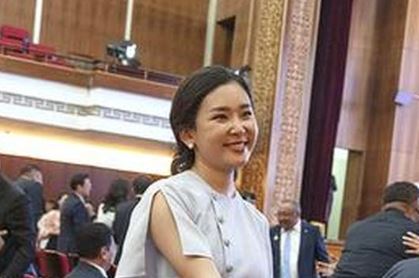Outdated Infrastructure: A Symbol of the Past
Ms. Tsenguun points to the country’s antiquated power plants and widespread reliance on coal for heating as emblematic of a nation mired in the past. These outdated systems, she argues, symbolize a failure to fully embrace the potential of democracy and hinder Mongolia’s progress.
A Disillusioned Electorate: The Winds of Change
The ruling Mongolian People’s Party’s narrow victory in the recent elections, coupled with the resurgence of the opposition Democratic Party, reflects a growing public disillusionment with the status quo. Many Mongolians, while initially welcoming the freedoms that democracy ushered in, have grown disenchanted with the perceived self-enrichment of lawmakers and their corporate allies.
A Vision for the Future: Limited Government and Individual Responsibility
Ms. Tsenguun articulates a vision for Mongolia that aligns with principles of limited government intervention and individual empowerment. She believes that excessive government control fosters corruption and stifles personal initiative. Her advocacy for a smaller, less intrusive government resonates with a growing segment of the population, particularly among the youth.
Protecting Freedoms: A Call for Vigilance
Recent incidents involving the detention of journalists have raised concerns about potential backpedaling on democratic freedoms. Ms. Tsenguun and her peers, who have only known the post-communist era, are determined to safeguard the liberties they hold dear and resist any erosion of democratic principles.
Youthful Engagement: A Rising Tide
While historically less politically active, younger voters are increasingly making their voices heard. Anecdotal evidence suggests a higher turnout among young people in the recent elections, particularly in the capital, Ulaanbaatar, where nearly half of the nation’s population resides.
A Government in Transition: Uncertain Prospects
The ruling People’s Party, cognizant of public discontent, has attempted to rebrand itself by appointing a younger, Harvard-educated prime minister. However, the extent to which the government will genuinely reform and whether Mongolia is truly on the cusp of a new democratic era remains to be seen.
Key Learnings:
| Aspect | Details |
|---|---|
| Young Leaders’ Vision | Aspiring to reshape Mongolia’s democracy, emphasizing limited government and individual empowerment. |
| Challenges to Democracy | Concerns raised about potential erosion of freedoms, evidenced by recent journalist detentions. |
| Public Discontent | Growing disillusionment with perceived corruption and self-enrichment among lawmakers and their corporate allies. |
| Youthful Engagement | Increasing political participation among younger voters, signaling a desire for change. |
| Government Response | Attempts by the ruling party to rebrand itself and address public discontent, but the extent of genuine reform remains uncertain. |
Soumya Smruti Sahoo is a seasoned journalist with extensive experience in both international and Indian news writing. With a sharp analytical mind and a dedication to uncovering the truth, Soumya has built a reputation for delivering in-depth, well-researched articles that provide readers with a clear understanding of complex global and domestic issues. Her work reflects a deep commitment to journalistic integrity, making her a trusted source for accurate and insightful news coverage.



